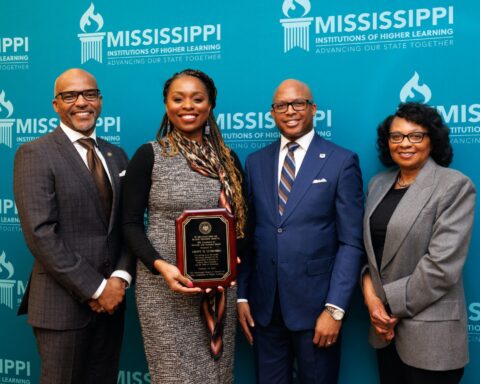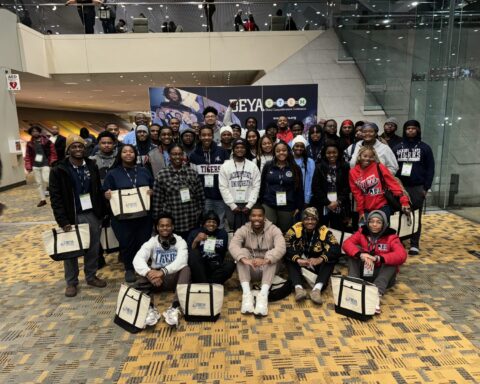By Justin Walls
Jackson State University (JSU) students recently embraced an opportunity to tour the Mississippi Emergency Management Agency (MEMA) facilities through the Target Infusion Project: Females Advancing Science and Technology (Project FAST).
Led by professor Dawn Bishop McLin, Ph.D., seven students visited MEMA, where they learned about a possible career path in emergency management.
“The trip was an opportunity for students to have real-life experiences around emergency preparedness in the workplace. The classroom is more than brick and mortar,” said McLin.
Maney Darby, a senior psychology major, summarized the experience as assuring, given her past insecurities about future career plans.
“I didn’t know what opportunities I could take in the field of psychology, so the experience really kind of gave me a sense of security. It kind of informed me how flexible the field is,” she said.
Sponsored by NSF, the Project FAST program enlists multidisciplinary female sophomore and junior students in STEM to actively research emergency preparedness. At the MEMA facilities, the students asked questions regarding how to better handle emergency situations on campus, as well as the handling of the city’s water crisis and the Mississippi River drought.
Senior Imara Walker spoke about the role that psychology has in disasters.
“After something happens, like a hurricane. You can’t just leave people there in the state of shock from a natural disaster,” said Walker, a psychology major. “A lot of times you see psychologists come in when you are preparing someone to speak to the media.”
Overall, the ability to visit the facility appeared to instill a vote of confidence in the students’ career paths, even if they do not end up in emergency management. They also spoke to their desire to assist underserved communities with the knowledge they have gained throughout their matriculation at JSU.
“I want to provide low-cost healthcare to low socio-economic people who are marginalized people of color. That’s my main goal. I want to provide care to everybody, but especially (Black) people, who have different mental disorders, where it’s kind of been overlooked because of our skin color,” said Walker.





